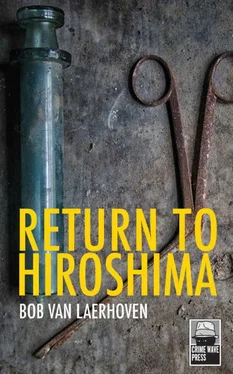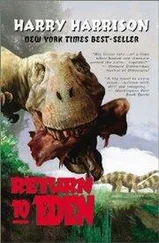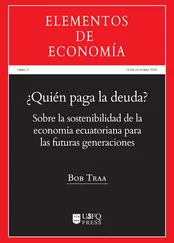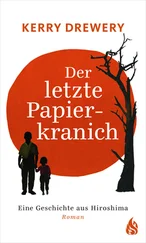“A cover up? You’re kidding me.”
“Akio, the people are running about like headless chickens, afraid for their jobs, their homes, their wages. They’ve a lot more to worry about than a bank raid, no matter how spectacular.” The doctor pulls a goody-goody face. “Maybe they’re jealous of the booty.”
“That’s what makes it so strange: the amount that was stolen hasn’t been made public. The National Guard are keeping it to themselves.”
“In line with worthy tradition, the Keisatsu-chô have appointed a local officer to coordinate the investigation. And guess who they picked?” Adachi grimaces. “One more reason to handle Takamatsu with kid gloves: Ki o tsukero yo, be careful.” The police doctor takes a look at his half-empty glass, picks it up, then returns it to the bar. “Crime figures are on the rise, more than 100% this year, and the public think we’re a bunch of lazy power-mad bastards. Let me give you a piece of advice. We’re all being screwed over by the monster they call the Economic Crisis. A friend of mine who works at Tokyo University under professor Toshihiro Ihori, the big economics brain, told me that the government’s spending more money than ever before. They’re pumping billions into public works, but it’s not helping us out of the economical dip.” Adachi sips at his glass. “Now we’ve got bridges but no cars to drive across them and airports without planes to land on them.”
“And the country is crawling with politicians and underworld gangsters cashing in on the show,” Takeda grunts.
“Fat and horny for power.” Adachi narrows his eyes. “At moments like this it’s safer for small fish like us to stay out of harm’s way.”
“You don’t know your own people,” says the inspector. “The Japanese always pretend to be yes men, that they don’t like to rock the boat, but at heart they’re a bunch of anarchists.”
“Exactly!” The doctor lifts his glass as if to say cheers and empties it in a single gulp. “But only if we think it’s worth it, on the quiet, in the dark. The hidden face of Japan, Akio. You still don’t get it, do you? How long have you lived here?” Adachi turns serious again, but there’s still a hint of cunning is his eyes. “Just like we don’t know the hidden face of Akio. Am I right?”
Takeda looks over Adachi’s shoulder at some people at the bar. “There’s nothing hidden about me. My mother brought me up with clear principles; don’t trust anyone / life can screw you at any moment / today your best friends, tomorrow you devour each other / always be on the look…”
“Friends don’t devour each other, Akio.” Adachi seems genuinely hurt. Takeda looks him in the eye. The police doctor is short, almost puny, delicate, his facial features blurred as if he’s withdrawn deep inside himself. Yet there’s still something dignified about him, a readiness to see things as they are.
“Not my words, Daichi, my mother’s. She tried to brainwash me at every turn. Can you blame her after what she’d been through?”
“She filled her child to overflowing with fear,” says Adachi. “You can blame her for that.”
“Not after…”
“That’s no excuse.”
“She always said: you don’t understand. You can’t. You had to be there to understand.”
“It’s not fair that you had to share her fear and her pain, that she blamed you for it all in a sense.”
Takeda smiles, almost imperceptibly. “She didn’t exactly love my ‘father’, don’t forget. I was destined for the latrine, just like my half-brother.”
“Treating a child like that is just criminal.” Adachi speaks with great authority, although himself childless.
“But I can’t blame her.”
“You have to.”
“Why? Your father laughed at you and despised you because you were gay. He did everything he could to dominate you, but he never experienced the camps, he was never raped by a guard and all the rest of it. He’s to blame for his actions, but I can’t say the same for my mother.”
Adachi blinks nervously. When anyone, even his friend, mentions his father, he senses danger lurking behind his back. In such moments, he wishes he could be smaller than he already is. He takes a deep breath, adjusts his glasses.
“My father couldn’t bear the idea that his son was a ketsuman . Ketsuman , ass cunt, ketsuman , ass cunt, he would scream at me, right in my face, his lips twisted with disdain. That’s wrong, I agree, but I was a disappointment as a son. You were anything but, yet your mother still treated you like shit…”
“She didn’t insult me, she took care of me. It was only when I caught her looking at me unawares, in silence, that I knew what she was thinking.”
“That’s worse than a frustrated father who slaps you around and screams at you because you don’t live up to his expectations.”
Takeda beckons the bartender with a wink. The man seems indifferent, has an arrogant expression on his face, purposefully takes his time. The condescending attitude of café staff is a recent trend in the bars in Hiroshima and elsewhere in Japan. “Live up to your own expectations, Daichi, and leave the past for what it is,” says Takeda.
“Speak for yourself.”
“I can’t forget my past.”
Adachi wants to ask him why the abrupt answer, but Takeda doesn’t give him the chance and orders another round of drinks yakuza -style. The barman drops his superior facade, bows, and scurries off to prepare the order.
“If I’d told him to get a move on because I’m a policeman he would have laughed in my face.”
Adachi smiles. “But because he thinks your mafia he’s off like a rabbit with a kilo of gunshot in its ass. You haven’t changed, Akio. And you still know how to change the subject when you think you’re being backed into a corner. Allow me to repeat my question: what about you?”
“Guilt.”
Silence. Adachi takes off his glasses, rubs his eyes, and puts them on again as if he wants to get a clearer look at his friend when he asks his next question: “I haven’t mentioned this for years, but does that guilt of yours have anything to do with the man you tracked down more than twenty years ago, the man behind the military id-tags from WWII? You gave me them when I was working at the Ministry of Health and asked me if I could help you find him. Is that what it’s about?”
Takeda stares at his friend, astonished. “So you… for all these years…”
“I had a hunch, Akio, nothing more. A hunch. You should have seen yourself when you asked if I could find that soldier. The hate was seeping out of your pores. Don’t you remember? It seemed like a reasonable request, but your eyes couldn’t lie.”
“Then you know what I did.”
“No, I don’t, and I don’t want to know.” The doctor tosses back half his drink.
“My life became one big lie from that day on,” says Takeda.
“Wrong. I hate to use clichés, but this one fits: from that day on you started to convince yourself that your life was one big lie.”
“I was a young policeman. What I did was…”
Adachi holds up both hands. Takeda falls silent, shakes his head: “The bastard deserved it, but it’s like a millstone round my neck.”
“If he deserved it then so do you,” says Adachi cryptically.
Another silence. The moment empties like a balloon, turns gaunt like winter skin.
“So you figured what I was going to do but you still helped me?”
A hint of a smile appears at the corners of Adachi’s lips. “Friends don’t devour each other, Akio.”
Takeda blinks. “I think it’s time I left the force, Daichi.”
“You’ve been saying that for years.”
Читать дальше












